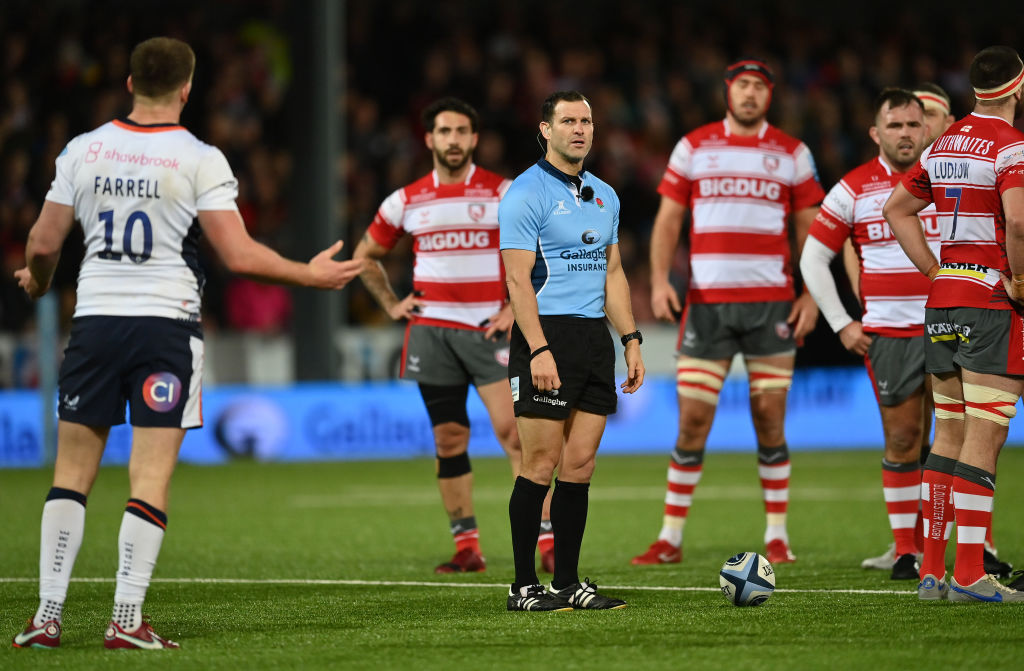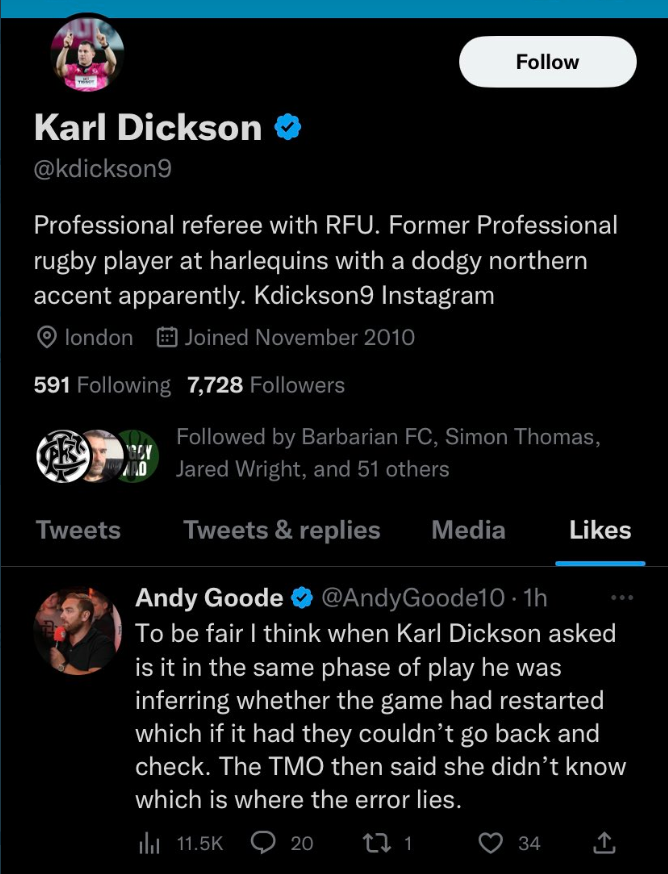Karl Dickson’s Owen Farrell oversight shows rugby referees MUST get big calls right

Let’s be clear, no game of rugby is ever decided by a singular refereeing decision; there are ample opportunities within a match to convert chances and clinch a victory.
But sometimes a game is overshadowed by a single refereeing decision, one which could have ramifications for a number of individuals and groups – and that’s simply unacceptable.
On Friday night Owen Farrell executed a sublime drop goal to hand his Saracens outfit a 19-16 victory over Gloucester Rugby in the Premiership.
It was an outstanding game of rugby, a battle of grit and determination, but the No10 shouldn’t have been on the field.
Because in the 76th minute he made what appeared to be direct contact with the head of Gloucester second row Jack Clement.
It was raised by the TMO Claire Hodnett to the referee Karl Dickson but, in an apparent miscommunication, it was not reviewed officially and therefore discarded.
The laws of the game dictate that foul play can be reviewed until the game restarts. On that basis, between the incident, the next natural stoppage and the subsequent restart, an incident can be checked.
A phase of miscommunication
Dickson asked whether it had happened within that “phase” – one assumes he meant that period of play rather than the particular phase – and that’s the key to the miscommunication.

Nigel Owens, the former referee who officiated over 100 Tests, later confirmed that there was no limit of time on a referee going back to review an incident, so long as the game hadn’t restarted. It hadn’t, and the mistake had been made.
Thereafter, Dickson liked a tweet appearing to suggest the TMO was at fault. He has since unliked the post.
“To be fair I think when Karl Dickson asked ‘is it in the same phase of play’ he was inferring whether the game had restarted which if it had they couldn’t go back and check,” the tweet read. “The TMO said she didn’t know which is where the error lies.”
Referees cannot make these mistakes
But these errors simply cannot happen. People make mistakes but there are results and the safety of players on the line. If rugby doesn’t stamp out the high tackle by punishing it in real time, where’s the deterrent?
Earlier in the match a try was correctly disallowed for a minor infringement. It took time but the right call was made – that must be the standard for all decisions.
The following day, on Saturday, Tom Foley took his time, communicated with his fellow officials and ensured his match between Newcastle and Leicester didn’t restart until he had checked a potential dangerous tackle. He dished out a yellow card for Tommy Reffell’s facial contact on Newcastle’s Tom Penny; a considered call.
So the referee got it wrong on Friday night and social media jumped on it. In a world of trial by Twitter, I’d rather referees take an extra few minutes to communicate – albeit irritating the paying crowd in the process – and get the big calls right than dismiss them without thorough consultation.
Eyes now turn to the Rugby Football Union’s disciplinary committee.Will Farrell be cited and banned? If so, will he somehow be able to return in time for the Six Nations, given he’s had seven weeks of bans for high contact. We will wait and see.